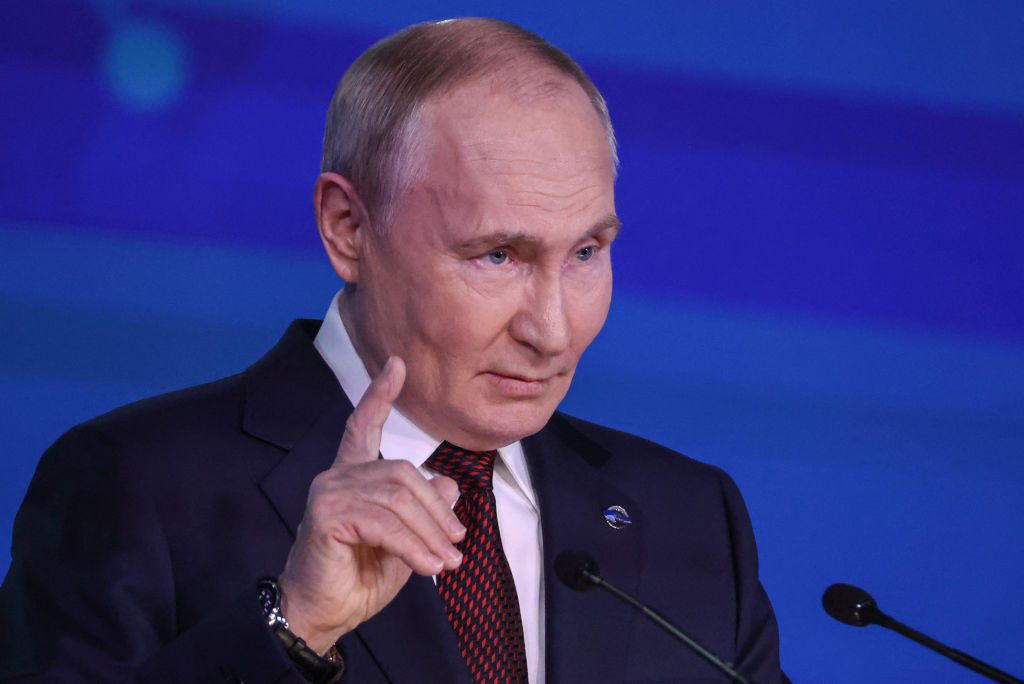Timing is everything. After the Coalition of the Willing came together in Paris and vowed to provide Ukraine with security guarantees “the day the conflict stops”, Russian President Vladimir Putin immediately threw a spanner in the works, stating that Moscow would regard any Western troops deployed as “legitimate targets for strikes”.
While the Coalition may have seemed united at Thursday’s meeting, Putin will know that such ominous words will only exacerbate existing divisions inside the EU. Italian Prime Minister Giorgia Meloni, for example, is opposed to putting Western peacekeepers in Ukraine for exactly this reason, fearing that any attacks on them by Russian forces would require a Nato Article 5 collective response and so spark a wider conflict. Germany is also reluctant about sending its soldiers, while the UK and France’s enthusiasm is gung-ho verging on delusional.
The Russian leader’s remarks should come as no surprise. The Kremlin is unlikely to end a conflict it waged, in part, to keep Nato troops away from its borders to then let those same troops patrol its borders. Moscow has expressed this repeatedly. So, what kind of peacekeepers would meet with the Russians’ approval? Helpfully, they have told us. In February, Moscow’s Permanent Representative to the UN Vasily Nebenzya declared that any peacekeeping force sent to Ukraine without a UN Security Council mandate would be considered “a legitimate military target”.
Russia’s motivations for favoring a UN peacekeeping action are clear. As a permanent member of the Security Council, it would enjoy significant influence over the mandate of any mission and the soldiers deployed would be likely to come from friendlier nations in Africa and South Asia than Europe or America. For its part, the UK, France and — depending on how it feels that day — the US could use its own seats on the Security Council to battle for Ukraine during negotiations about the remit. French President Emmanuel Macron mooted the idea himself back in March, but has not mentioned it of late.
Yet, such a prospect would, overall, constitute a downgrade for Europe. The Coalition of the Willing has often focused less on creating workable solutions for Ukraine’s post-war security. It has appeared more concerned with making Europe seem relevant to peace discussions, as well as responding to American demands that the continent take responsibility for its own security. Admitting that peacekeeping is more likely to be handled by a UN force would constitute a significant embarrassment for the continent — particularly after British Prime Minister Keir Starmer said that the continent must “do the heavy lifting”.
It would additionally make it easier for the US and Russia to push Europe out of peace talks altogether, since there would be less reason to consult the continent. That in turn would reduce European leaders’ ability to advocate for Ukraine with the White House. Yet, the prospect of non-Western troops in Ukraine is one that Europe’s governments may soon need to get behind, especially given their own inability to muster up any significant numbers. Reports indicate that the US is open to Saudi Arabian and Bangladeshi soldiers protecting a post-war buffer zone.
European officials confess that the prospect of peace seems distant. Yet, the war will only end when both Russia and Ukraine are ready. A refusal to listen to what kind of peace arrangement Moscow would accept only makes the chances even more remote. Europe should admit that the Coalition of the Willing is not the only plan on the table and return to earlier thoughts of a UN alternative, even if that means also admitting its own irrelevance. The question the continent now needs to ask itself is: does it really want to help end the war or does it want to stay in the room, albeit one where nothing happens?











Join the discussion
Join like minded readers that support our journalism by becoming a paid subscriber
To join the discussion in the comments, become a paid subscriber.
Join like minded readers that support our journalism, read unlimited articles and enjoy other subscriber-only benefits.
Subscribe